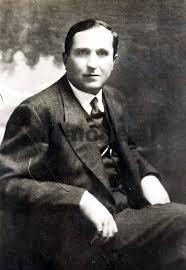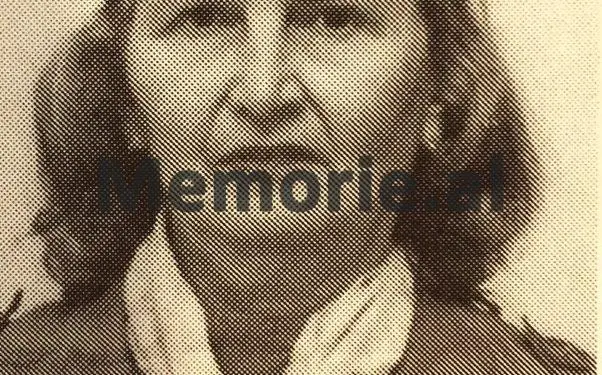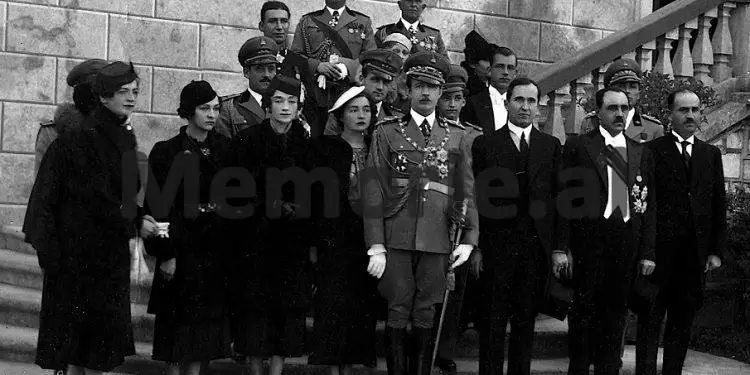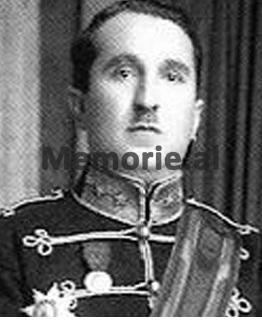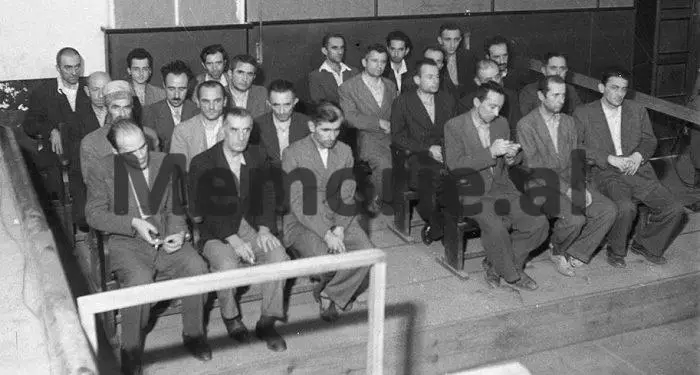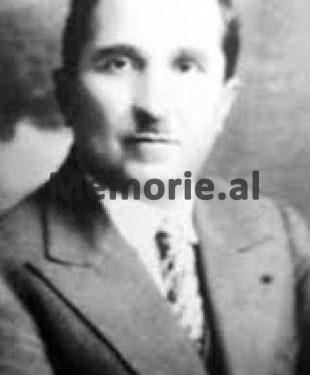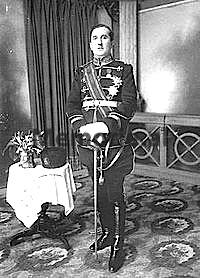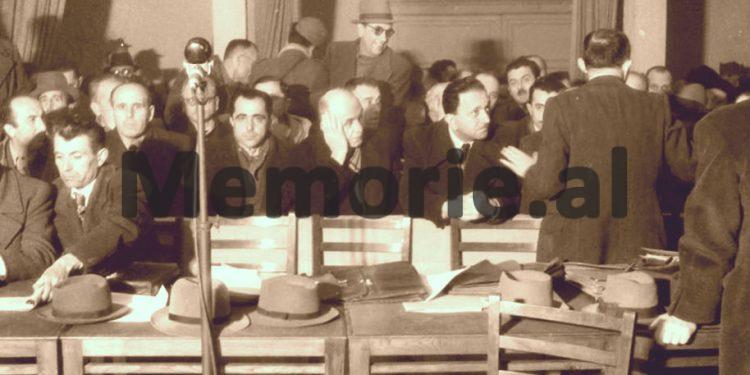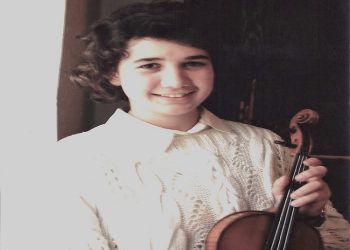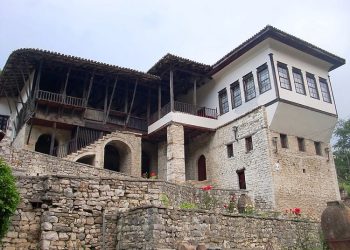Dashnor Kaloçi
Memorie.al publishes the unknown story of Koco Kota, originally from the city of Korca, who after graduating from the Athens University of Political Science returned to Albania in 1912 in response to the call of Ismail Qemali, who appointed him as chief secretary of the Ministry of Education. Following the great support he gave Ahmet Zog for his return to power, in 1925 he was appointed Minister of Internal Affairs and later as Prime Minister of Albania, functions which he performed with high loyalty to King Zog, whom he accompanied during his departure from Albania in April 1939, following the fascist aggression of Benito Mussolini. The testimony of his granddaughter, Kristina Kote, of deploying Koco Kota in Thessaloniki, wherein 1945 three Albanian State Security officers, who, with the help of Greek Communists who then controlled much of Greece, kidnapped her with forcibly put him in a locked car and brought to Tirana to be sentenced in the Special Court to 30 years in prison. His tragic death in Burrel prison and persecution saw me as the family of his brother, Ilia Kote, who not only had never been involved in politics but had been a staunch supporter of Fan Noli….
“My uncle Kostaqi, or Koco, as we used to call him in our family, quickly left Korça and settled in Tirana before 1920, because he was politically involved. Unlike Koco, my father Ilia, who graduated from Istanbul Law School, not only did not deal with politics, but he told Kocho to give up politics. But Koco never listened to our father, and he engaged in politics as a young man in the government of Ismail Qemali, where he was appointed Chief Secretary at the Ministry of Education. Although Koco worked and fought for a lifetime for the good of Albania, from the Lushnja Congress where he was elected Secretary and then as Minister of World Affairs, and twice as Prime Minister of Albania, he had a tragic fate. After the war ended, he left Athens where he had settled after Zog’s departure and settled in Thessaloniki along with his two companions, a former high official of the Monarchy. From the beginning of 1945, three Albanian State Security Officers went and met at the house where they resided, assisted by the Greek Communists who at that time controlled a large part of the Greek territory, including Thessaloniki. They dismissed him as nationalist and lied to him that he should return with them to Albania, as a coalition government with Enver Hoxha’s communists would be formed. Although Kocho disbelieved their statements and refused to return, they forcibly took him in a locked car and brought him to Tirana, where he was brought before the Special Court in March 1945. Unfortunately, Koco received word from his brother and father. my Ilias, who had told him not to get involved in politics. So after serving a life sentence in the Special Court, he died tragically in the dark cells of the Burrel Prison. ” This is reminiscent of Kristina Kota, the story of her uncle, former Albanian Prime Minister Koco Kota, who took an active part in Albanian politics at a very young age, in the Government of Ismail Qemali and then in the Lushnja Congress where he was elected Senator. , to continue his long career as an MP, Minister of the Interior, World Affairs and twice Prime Minister of Albania. Who was Koco Kota, what family did he come from and what was his past? Where was he educated and how was he first engaged in Albanian politics? What were the functions held by Koco Kota from 1912 until 1939 when the Italian fascist aggression of April 7th found him in the post of Prime Minister of Albania? Where did he settle after leaving Albania, and why did he not follow King Zog, who had served him faithfully for 20 years in consolidating the Albanian State? How did the Albanian State Security officers find him in Thessaloniki and how did they kidnap him by forcing him into Albania with the help of the Greek communists? What was Koco Kota’s attitude at the Special Court in March 1945 and how did his lawyer, Spiro Stringa, defend himself? Why was Koco sent to Burrel Prison, and how did he die in 1949 from the torture he and his two other cellmates had done? Related to these and other events and facts from the life of the former Prime Minister of Albania, shed light on the testimonies of his granddaughter, Kristina Kota, as well as the original defense document of his lawyer, Spiro Stringa (which his son has preserved). Pandeliu, as well as the bewildering story of Avni Bejkova, who was present at the tragic death of Koco Kota in Burrel Prison, where he was serving his sentence.
Who was Koco Kota?
Kristina Kota, along with her sister Gallata, is the only heirs of the Kota family living in Albania, who tell us something more about their uncle, the former Prime Minister of Albania, who had a tragic fate. Regarding the origin and past of the Kota family, Kristina testifies: “Koco or Kostaq, as his uncle’s real name was, was born in the city of Korca in 1888, where our family origin is. My grandfather and Koco’s father was called Nuçi Kota, and at that time he was involved in the leather trade and imports other than Italy and Greece. Koco was the second child of three boys and a girl who had a Nuçi Kota who, although not a high school graduate, was a very practical man. By age, the first of the uncles was Kristaq, followed by Koco, and the youngest of them was my father, Ilia. At that time, my grandfather’s house, Nuçi, where my father and my two other brothers and sister Leonora were born, was located near the present-day Orthodox Church of Korça. Of the four Nuçi children, only my father, Ilia, and Koco could finish high school, while eldest Kristaqi and daughter Leonora only finished high school. As my father Ilia told me, Koco first taught in his hometown of Korça, and then he went to Greece and went on to graduate from Athens University, where he majored in Political Science. While my father, Ilia, also graduated in Law from Istanbul University. Kocho married at a young age on his return from Greece, and with his first wife who died at an early age, he had three children, two daughters, and a son. The girls were called Tefta and Beatrice, and the boy was named Grandfather, Nucci. Koco left home early, and after graduating from the University of Athens, he no longer returned to Korça, after dedicating himself to politics. In 1912 he responded to Ismail Qemali’s call and took part in his administration, working as Chief Secretary of the Ministry of Education, in the Government headed by Ismail Qemali himself.
Secretary at the Congress of Lushnja
“In 1920, Koco Kota participated in the Lushnja Congress as a deputy of Korça, where he was elected Secretary of the Congress. Two years later he was appointed Prefect of Berat and after the events of June 1924, he left Albania because he was a supporter of Zog ”, recalls his granddaughter, Kristina Kota. After Zog’s reappearance in December 1924, Koco Kota was appointed by him as Colonel of the Gendarmerie and sent to the Southern Districts to re-establish the situation that had been created after the coup of the Fanatic forces. In the parliamentary elections organized by Ahmet Zogu after his return to power, Koco was elected a deputy of Korça and was appointed to the post of Minister of World Affairs. After that in 1925, he was appointed Prime Minister and Minister of the Interior, serving Ahmet Zog faithfully, who valued him as one of the most capable politicians in his side. From 1925 until 1939, Koco Kota succeeded in the highest functions of the Albanian state, as Member of Parliament, Speaker of Parliament and Prime Minister of Albania. He was a very liberal politician, and in 1938 Ahmet Zogu sent him to Paris where a large part of the anti-Zogist political diaspora had settled to talk with them about returning to Albania. Koco Kota left Albania with King Zog on April 7, 1939, and settled in Thessaloniki, not interfering with politics.
Kidnapping in Greece and the Special Court
Throughout the War, (1939-1944), Koco Kota stayed in Greece with his family, his wife Vasilika (from Korça but born in Istanbul), son Nucin (graduated in France) and two daughters, Tefeta and Betarice. Concerning Kocho’s relationship with his brother Ilian, as well as his abduction in Greece, his granddaughter Kristina tells us: “My father Ilia and our family had very good relations with Kocho and his family, although Kocho was a birdman, and my father a fanolist. We came to Tirana in 1937 and my father worked as a lawyer in the Old Bazaar with his colleague, Lawyer Machin. After Koco left, on April 7, 1939, we stayed in Albania, and Dad worked again as a lawyer, without interfering with politics. Even when the Communists came to power in late 1944, we were not bullied and our father worked as a lawyer again. The Communists’ attitude towards our family changed after Kocho’s abduction in Greece and his conviction in the Special Court. As my father Ilia has told me, from the beginning of 1945, two or three Albanian Security Officers, with the help of the Greek Communists, went and met Koch in Thessaloniki, where he was stationed after Zog’s departure from Greece. They dismissed him as a nationalist by lying to him and demanded that he return with them to Albania, as they would form a coalition government together with Enver Hoxha’s communists. Although he did not believe their allegations and refused to return with them, they were forcibly taken and brought in a locked car to Tirana, where he appeared before the Special Court. During the court hearings, Koco maintained a dignified attitude and rejected accusations that he allegedly favored the occupation of Albania and had been an agent of the Greeks and Italians. Although his lawyer Dr. Spiro Stringa, (with whom our family had a close friendship) defended him very professionally, he was sentenced to 30 years in prison. If the charges against him were true, he would have been shot like many others who were tried in the Special Court. But Koco was pure and had worked and fought all his life, only for the interests of Albania, “said Kristina Kota to her uncle.
The persecution of the family of Ilia Kote
Following the conviction of Koco Kota and his tragic death in Burrel Prison, the Communist regime retaliated against his brother Ilias’ family after Koco’s son (Nuçi) and his two daughters, Tefta and Beatrice, fled Albania. Kocho’s brother, Ilia, had never been involved in politics and, unlike him, had been sympathetic to Fan Noli and his supporters. Regarding the persecution of Ilia Kota’s family, his daughter Kristina recounts: “After Koco’s death in the Burrel prison, we were removed from our home and left for some time on the streets, taken to Peqin where our father worked as a lawyer again. After ten years of leaving us in Peqin, in 1963, we were sent back to Tirana, where we lived in a barracks in Brakë neighborhood. At the time, we were forced to sell the house luggage to secure our bread. Even after returning to Tirana, we sometimes tried to remove us and exile us to other districts. My father, Ilia, died in 1968, at the age of 86, abandoned by all his close friends and relatives because of our biography. A year later, our mum Crisisthi died. Most of us all, my sister Gallata, who worked in agriculture all her life, suffered, ”concludes her confession Kristina Kota, about the suffering that her family went through, for the sole reason that her uncle had served as Prime Minister of Albania at the time of King Zog, whom the Communists had declared a lifelong enemy. ” Memorie.al




